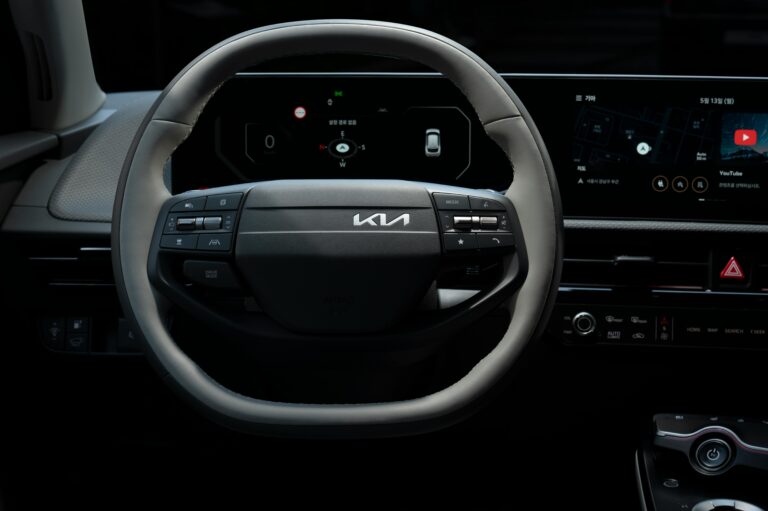Electric vehicles (EVs) are rapidly reshaping the Australian automotive landscape—but it’s not just the switch from petrol to electricity driving innovation. Behind the sleek exteriors and silent motors lies a powerful digital brain: Artificial Intelligence (AI). From optimising energy consumption to enabling semi-autonomous driving, AI is transforming EVs into smarter, safer, and more efficient machines.
For Australian drivers embracing the EV transition, understanding the role of AI reveals just how intelligent the vehicles of the future—and present—really are.
—
Table of Contents
- What Is Artificial Intelligence in the Context of EVs?
- How AI Enhances the EV Driving Experience
- AI and Autonomous Driving in EVs
- Real-World Examples of AI in EV Brands Available in Australia
- Future Implications of AI for Australian EV Owners
- FAQs
- Conclusion
—
1. What Is Artificial Intelligence in the Context of EVs?
Artificial Intelligence refers to computer systems that mimic human decision-making, learning from data to improve over time. In electric vehicles, AI operates in the background—processing real-time sensor inputs, GPS data, driving habits, and environmental conditions to make your EV smarter and more adaptive.
It’s not just about flashy features like self-driving. AI plays a central role in:
- Enhancing vehicle performance
- Reducing energy consumption
- Increasing road safety
- Delivering personalised user experiences
—
2. How AI Enhances the EV Driving Experience
Battery Management
AI is critical for managing one of the most expensive and vital components of an EV—the battery.
- Predicts energy use based on driving style and weather conditions
- Adjusts thermal management to extend battery life
- Optimises charging cycles to reduce degradation
In Australian climates—from Darwin’s tropical heat to Canberra’s winter chill—AI ensures your battery performs efficiently year-round.
Predictive Maintenance
AI systems monitor thousands of vehicle data points to detect problems before they become serious.
- Tracks component wear-and-tear
- Schedules service before breakdowns occur
- Alerts drivers of anomalies through mobile apps
This is especially beneficial for drivers in regional Australia, where access to service centres may be limited.
Smart Navigation and Route Optimisation
AI integrates real-time traffic data, road conditions, and charging station availability to help you get from A to B faster and more efficiently.
- Suggests EV-friendly routes with charging stops
- Learns from driver behaviour to improve predictions
- Integrates with smart home assistants and EV apps
Planning a long road trip from Melbourne to Adelaide? AI can help ensure you reach each charger before your battery dips too low.
—
3. AI and Autonomous Driving in EVs
Many EVs are laying the groundwork for self-driving capabilities—and AI is the key enabler.
AI-powered driver assistance systems (ADAS) include:
- Lane keeping and adaptive cruise control
- Automatic emergency braking
- Traffic sign recognition
- Self-parking
Some advanced models, like Tesla’s Autopilot or Polestar’s Pilot Assist, are already on Australian roads. While full autonomy is still a work-in-progress, AI continues to improve driver safety and comfort in real time.
—
4. Real-World Examples of AI in EV Brands Available in Australia
| Brand | AI-Driven Features | Available in Australia |
|---|---|---|
| Tesla | Autopilot, Smart Summon, Battery AI | Yes |
| Hyundai | AI route planning, Smart Regenerative Braking | Yes (IONIQ models) |
| Polestar | Google-based AI infotainment, Pilot Assist | Yes |
| Nissan | ProPILOT semi-autonomous system | Yes (Leaf, Ariya) |
| BYD | Intelligent cockpit, adaptive driving profiles | Yes |
These features aren’t just for tech lovers—they’re increasingly standard, even in mid-range EVs available throughout Australia.
—
5. Future Implications of AI for Australian EV Owners
The integration of AI into EVs will become more powerful over the next decade, especially as Australia upgrades its digital infrastructure and 5G networks.
Anticipated developments include:
- Fully autonomous driving with real-time AI decision-making
- Vehicle-to-grid (V2G) energy optimisation using AI
- AI-assisted insurance claims and driver coaching
- AI-driven energy sharing between home, EV, and grid
For Australian households adopting smart solar, home batteries, and EVs, AI will become the central coordinator—ensuring optimal energy use, savings, and convenience.
FAQs
🤖 Do all EVs come with AI features?
Most modern EVs incorporate some level of AI, particularly for battery and energy management. Higher-end models offer advanced autonomous and smart navigation features.
🔋 How does AI help battery life in EVs?
AI regulates temperature, charging cycles, and discharge rates, ensuring your battery lasts longer and performs consistently.
🚘 Are AI-driven features safe to use?
Yes. AI features are extensively tested and often improve driver safety through real-time monitoring and response systems.
📡 Do I need an internet connection for my EV’s AI to work?
Basic features work offline, but advanced AI functions (like live traffic updates or over-the-air improvements) require a stable internet connection.
—
Conclusion
Artificial Intelligence is more than just a buzzword—it’s the brain behind today’s electric vehicles. Whether managing your EV’s battery on a hot day in Perth or assisting with highway driving in Queensland, AI ensures your vehicle is smarter, safer, and more sustainable.
🚗 Thinking of buying an EV in Australia? Look beyond the range and price—consider how AI features can enhance your driving experience and future-proof your investment.
Explore how Artificial Intelligence powers modern electric vehicles in Australia—from smart battery management to autonomous driving and predictive maintenance.
